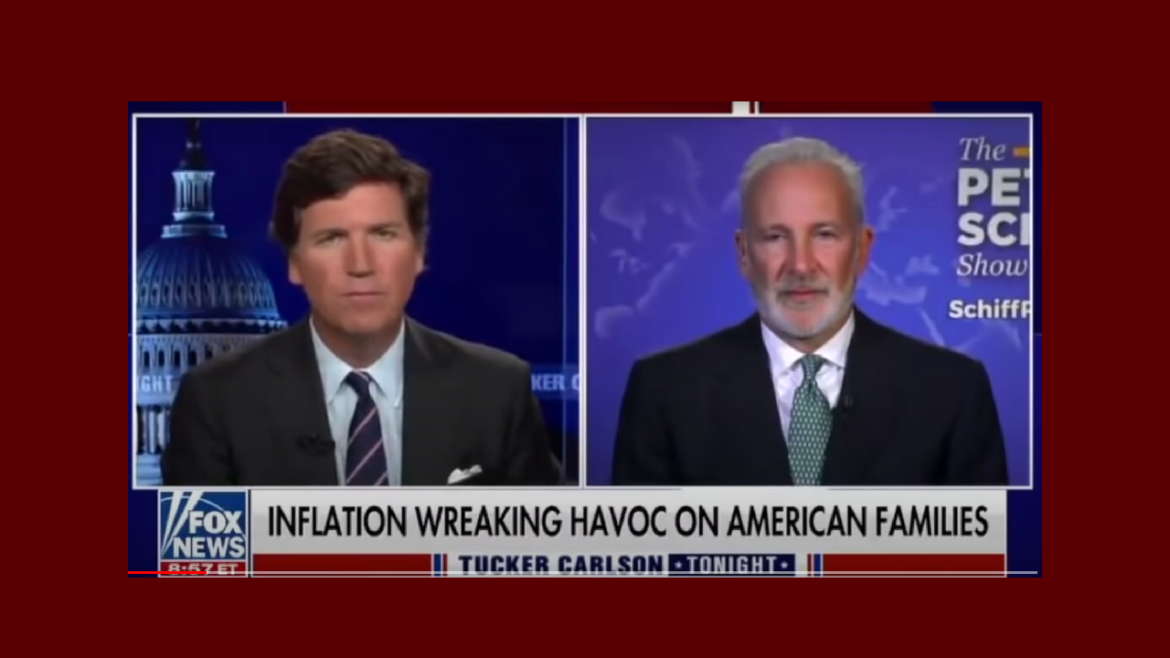Gold has all the potential to go unprecedentedly high. But silver will be gold on
Site:
Precious metals news
The central bank’s outcome-based approach exacerbates economic and financial risks and needs to be addressed now.
U.S. employees are feeling confident enough to push for better pay and conditions, despite the high level of unemployment after the pandemic, a sign the balance of power is shifting in the job market.
\Chicken-sandwich fever means poultry is pacing U.S. food inflation in the meat case.U.S. producer prices for processed poultry jumped to an all-time high in May, climbing 2.1% in the eighth straight monthly increase, U.S. government data showed Tuesday. Gains in poultry outpaced the 0.8% increase in the broader producer price index...
The Federal Reserve is betting supply-driven inflation will be transitory—but that approach depends on inflation expectations staying low.
 The Department of Education Just Approved $500 Million of Student Debt Relief for 18,000 Borrowers
The Department of Education Just Approved $500 Million of Student Debt Relief for 18,000 BorrowersJun 16, 2021 - 05:17:54 PDT
On Wednesday, the Department of Education announced that it had approved the cancellation of approximately $500 million worth of federal student loans held by 18,000 borrowers who attended ITT Technical Institute. The borrowers will have 100% of their loans cancelled.
 Mortgage Refinances Rebound As Rates Drop Temporarily to Lowest Level in a Month
Mortgage Refinances Rebound As Rates Drop Temporarily to Lowest Level in a MonthJun 16, 2021 - 05:14:14 PDT
After three straight weeks of declines, mortgage demand came crawling back, thanks to a drop in interest rates.
Treasury yields fell slightly early on Wednesday, even as investors awaited the outcome of the Federal Reserve's policy meeting in the afternoon.
 China Sends Record 28 Fighter Jets Toward Taiwan After Telling NATO: 'We Won't Sit Back'
China Sends Record 28 Fighter Jets Toward Taiwan After Telling NATO: 'We Won't Sit Back'Jun 16, 2021 - 05:08:47 PDT
The timing appears an unmistakable message and warning to the West after on Monday NATO issued a communique which for the first time ever singled out China as a central security "challenge" to the military alliance and a stable global order: China's PLA military on Tuesday flew a record 28 fighter jets into Taiwan's air defense identification zone.
One of the most highly-anticipated political events of the year has begun with Russian President Vladimir Putin and U.S. President Joe Biden meeting at their summit in Geneva.
 Biden’s $6T Budget Would Cause US Economy To Shrink by 1% Over Next Decade: Study
Biden’s $6T Budget Would Cause US Economy To Shrink by 1% Over Next Decade: StudyJun 16, 2021 - 05:01:45 PDT
President Biden has proposed a sweeping $6 trillion budget that would slash economic growth over the next decade while killing tens of thousands of jobs, according to a new analysis published Wednesday morning.
Inflation is running hot right now. The May CPI data came in hotter than expected, a trend we've seen every month this year. But the Federal Reserve and the mainstream financial media continue to insist inflation "transitory." Peter Schiff recently appeared with Tucker Carlson on Fox News to talk about skyrocketing prices.
ederal Reserve policymakers are meeting this week against the backdrop of conflicting economic data, as pent-up demand causes consumer prices to surge – even as millions of Americans remain unemployed more than one year after the coronavirus pandemic began.
So why choose silver over gold? For starters, gold's pretty expensive right now. Compared to silver, there's a ~6,700% premium. But what's even more important to look at is the premium that gold currently holds over silver. With the exception of major economic events, silver tends to trade at a fairly similar rate to its more valuable cousin.
Gold fell on Tuesday as the dollar firmed and as markets weighed the chances that the U.S. Federal Reserve this week may signal an eventual easing of stimulus.
Jun 15, 2021 - 12:56:14 PDT
As I’ve pointed out before, I believe the CPI significantly understates the impact inflation has on household wealth. The real rate is likely much higher. An alternate measure shows that inflation could actually be closer to 13% year-over-year.
Join Mike Maloney and Jeff Clark as they investigate the potential returns of silver when measured against the stock market. There’s also some great information on a massive divergence in the housing market, along with a chart of the day and some wonderful viewer feedback.
The IRS said it is continuing to distribute federal stimulus checks to eligible Americans, with another 2.3 million payments issued on last week. Some of those payments include "plus-up" adjustments for people who received less money than they were entitled to in earlier checks.
 Unemployed Households Can Earn This Stunning Amount on Welfare in 21 States, New Study Finds
Unemployed Households Can Earn This Stunning Amount on Welfare in 21 States, New Study FindsJun 15, 2021 - 11:25:46 PDT
In 19 states, a family of four with two parents who aren’t working can receive benefits roughly equal to a $100,000 annual salary. A new study exposes this welfare state dysfunction and why it's such a problem.
Congress is hard at work on a stimulus bill. Doubtless their efforts will pay off. Does anyone stop to ask what it is about stimulus that stimulates? And what, exactly, does it stimulate?
 There’s a Big Divergence Developing in Inflation Expectations: Bloomberg
There’s a Big Divergence Developing in Inflation Expectations: BloombergJun 15, 2021 - 11:14:09 PDT
Older people who remember bouts of high inflation see much stronger price pressures ahead.


























